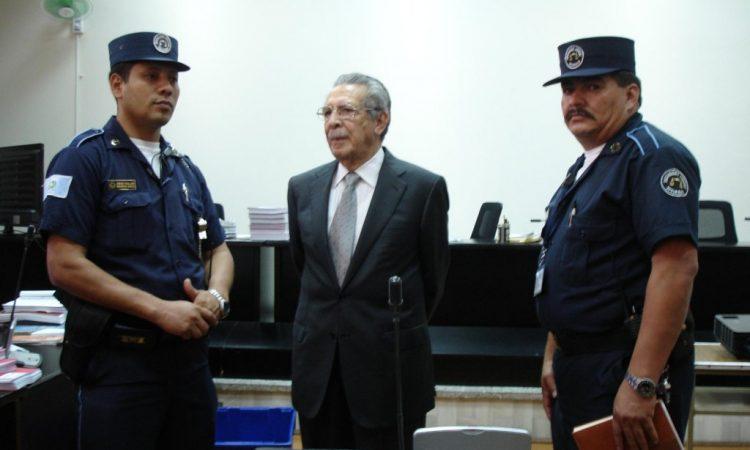Your opinion piece “Justice Denied: The Non-Trial of Ríos Montt” (January 12, 2015) is obviously well intended; but we feel it is disoriented. The question at the heart of the Ríos Montt trial is a simple and potentially dreadful one: did genocide occur during Guatemala’s internecine conflict? For the sake of making his argument, the author Luis Eduardo Barrueto badly wants it to be true. Even so, he cannot avoid having a sensible grasp of the matter, and it betrays him.
As Barrueto correctly says, quoting from the UN genocide convention, genocide is based on an “intent to destroy, in whole or in part, a national, [ethnic], racial or religious group.” But then, only a few lines later, Barrueto qualifies that the killings in the Ixil region, with which Ríos Montt is charged, “had the purpose of eliminating subversive elements” — a fact which explains “the higher concentrations of killings.”
Unfortunately for the sake of the author’s argument, one cannot have it both ways. Genocide is genocide, while “eliminating subversive elements” is a strategic objective; in other words, not genocide. The Liga Pro Patria of Guatemala, a nonprofit association whose purpose is to support the rule of law (and of which we are both members), puts the matter this way:
“In order for genocide to have occurred, there would need to have been proven orders to eliminate the Ixils as a group. Given that the Ixils also joined the army and took part in the civil-defense patrols, it is obvious that no order of this type could have existed; and so, by definition, there was no genocide in Guatemala.”
Certain other facts are troubling for the genocide argument. At the conclusion of the 1996 truce, no claim of genocide was raised. For more than a dozen years up to that time, UN human-rights investigators were producing annual reports about the events of the conflict, and genocide was not once mentioned in any of those.
Barrueto now asserts that “considerable pressure is in the pipeline to promote the idea that what took place in Guatemala was not a genocide.” In our view, the allegation of genocide was adduced, years after the fact, as a tool for retribution — for settling old scores. Barrueto is not telling us about the other, much larger, pipeline — the one promoting the idea that what took place was a genocide.
For example, Barrueto expresses pique at the recusal of the presiding trial judge, Irma Valdéz, on grounds that she “wrote a thesis on the topic of genocide.” He says: “It is dumbfounding that her objectivity was challenged on the basis of an academic work.” But he fails to say what her thesis actually does. It upholds the argument that genocide did occur in Guatemala — and that assertion cancels her suitability to sit in judgment at this trial. Indeed, the other two judges on the tribunal accepted the recusal as valid, even if Barrueto does not.
Barrueto seems to be sensing an acquittal on the charges. As a last argument, he asserts that “due process — in a society ruled by exploitative institutions — is not guaranteed for everyone equally. Only elites, Ríos Montt included, have access to such privilege.”
That assertion is entirely misconceived. As the trial record shows, Ríos Montt — who has cooperated at every step of the process — is being prosecuted by judicial bureaucrats who are motivated first and foremost by politics, not by law. The high point of their misbehavior came when presiding Judge Yassmin Barrios ejected Ríos Montt’s lawyers from the courtroom and then ordered, without the defendant’s consent, his co-defendants’ lawyers to represent him as well. That gross violation of due process, as the constitutional court recognized, was many degrees more severe than the “insubstantial technicalities” which Barrueto says were at the root at the overturned verdict.
Barrueto’s appreciation of the case appears to be inspired by doctrine, rather than by the facts at hand. It should behoove us all to recognize that politics is a false expedient when it comes to the law; and that, in any circumstance, ideology is no substitute for history.
This letter first appeared in the PanAm Post.
Armando de la Torre contributed to this letter.
 Join us in our mission to foster positive relations between the United States and Latin America through independent journalism.
Join us in our mission to foster positive relations between the United States and Latin America through independent journalism.
As we improve our quality and deepen our coverage, we wish to make the Impunity Observer financially sustainable and reader-oriented. In return, we ask that you show your support in the form of subscriptions.
Non-subscribers can read up to six articles per month. Subscribe here.

